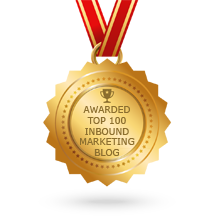 The following post is a guest post from Jeremy Decker of Click Click Media. Click Click Media is a leading provider of Google AdWords and PPC services to Australian Businesses.
The following post is a guest post from Jeremy Decker of Click Click Media. Click Click Media is a leading provider of Google AdWords and PPC services to Australian Businesses.
In today’s PPC (Pay-Per-Click) Marketing landscape, there are a huge variety of ways in which you can create a slight advantage over your competitors and help yourself get that little bit of extra revenue out of your marketing investment. Despite the complexity of today’s PPC platforms steadily increasing, the majority of your time is still best spent on the very basic areas of your campaign. One of these basic areas is ensuring that your campaign’s keyword list is as extensive and highly targeted as possible.
Below are some tips to help you in creating a killer keyword list for your PPC campaign:
1. Make use of Microsoft Excel concatenation
This is especially important for service based businesses where location is important. Once you’ve built a keyword list using the help of your website, competitor sites & Google’s keyword tool then throw your list into an excel spreadsheet. Once you’ve done this, put together a list of location and suburb names in the same file. Once you’ve got these two lists, you’re able to combine the lists using the “concatenate” function. For example, if you have the keyword, “find a plumber”, you could use the concatenate function to combine with all of your locations which would very quickly turn this keyword into tens, hundreds or even thousands of keywords (such as “find a plumber Sydney”). For more information on the concatenate function, check out this link - Concatentate.
2. Structure is key
When you’re first planning out your keyword list, one of the first things you need to organise is your account structure. Setting up a PPC account with a granular Campaign/AdGroup list is vital in the success of your campaign, as it allows you to:
o Campaigns: Create specific budget, geo-targetting, ad scheduling (& much more) settings for each of your designated keyword sets.
o AdGroups: Create keyword-specific ad creative, meaning your adverts are more relevant to a user’s search resulting in increased CTRs (Click Through Rates).
In most cases, the best possible structure you can create for your campaign is one that allows for a single AdGroup for each and every keyword in your campaign. Doing this will allow you to build a set of ads for every keyword, giving you the ability to get very targetted with your ad creative.
3. Make use of various match types
A common mistake made by people new to PPC is that they’ll stick to Google’s default match type, “broad match”. The problem with this match type is that your ads won’t just be triggered by searches made on Google using your keywords, but also searches that Google deems as being relevant to your keywords. For example, if you were advertising a plumbing business using the keyword “plumber Sydney” with broad match, there is a high chance that you’ll appear for searches like “plumber careers Sydney”. Due to the fact that these types of search queries will generally not convert into paid work for a plumbing business, it’s usually a good idea to try and avoid this. One way of doing this is by using “Exact match”. This match type prevents your ads from being triggered by searches related to your keywords, and instead only allows them to be triggered by the exact keywords you’ve chosen. For a full list of AdWords match types and their functions, check out this link.
Lastly, when you’re putting together your keyword & keyword structure, the important thing to remember is that things are going to need to change over time. Adapting to changing market landscapes is the key to ensuring that your performance constantly improves. Don’t be a afraid to remove under-performing keywords, change keyword structures within your account to put heavier focus on particular keywords, and of course expand your keyword list on a regular basis.
Do you have any keyword building ideas to share? If so feel free to leave a comment!
Other Articles You May Find Helpful:
There are no related posts

